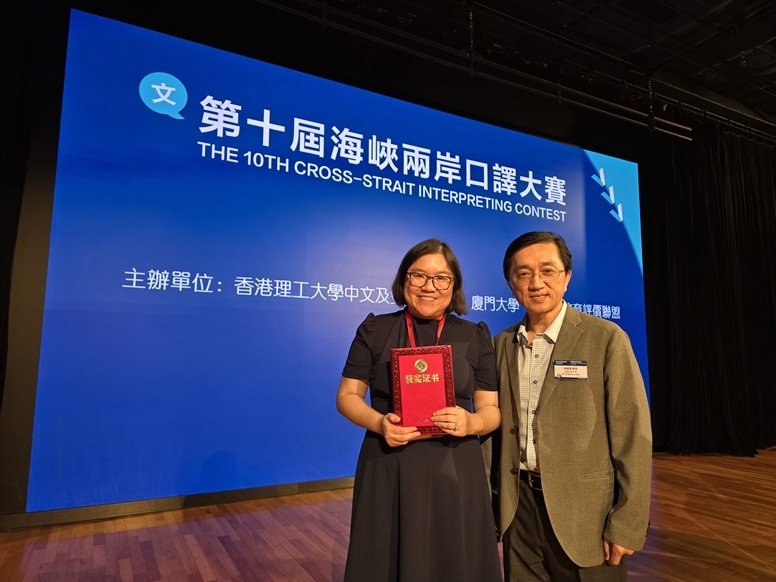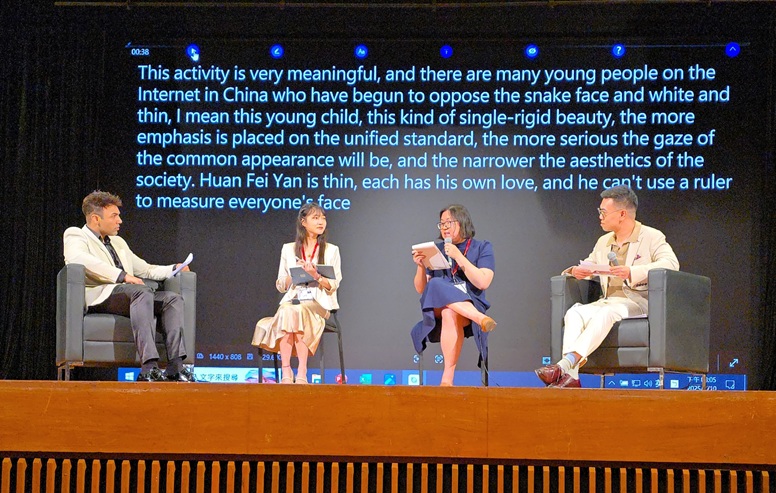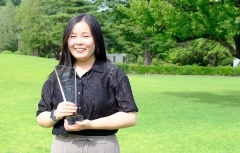Winning Streak Continues with Student’s First-Place Win at Prestigious Simultaneous Interpretation Contest
| by Caitlin Fillmore
Aloha Komatsu won the Simultaneous Grand Prix, hosted by the Japan Association of Conference Interpreters (JACI), one of the largest organizations for interpreters in Japan.





